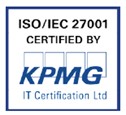EU Regulation Proposal on Standard Essential Patents
30 May 2023
Author: Vilhelm Schröder
Introduction
On 27 April 2023, the European Commission released its highly debated proposal outlining a new regulation which concerns standard essential patents (SEPs). SEPs safeguard technology that has been deemed crucial for implementing a technical standard endorsed by a standard development organization.
According to the Commission, the primary objectives of the proposal are to ensure that end users, including small businesses and consumers within the EU, reap the benefits of products based on the latest standardized technologies, and to foster an environment that attracts standards innovation in the EU. Furthermore, the proposal also aims to encourage both SEP holders and implementers to engage in innovation within the EU, to produce and distribute products within the EU, and to maintain competitiveness in non-EU markets. The regulation establishes guidelines that are said to enhance transparency regarding essential information required for SEP licensing, along with regulations governing the registration of SEPs. Moreover, it introduces a procedure for assessing the essentiality of registered SEPs and outlines a process for amicably resolving disputes pertaining to the fairness, reasonableness, and non-discriminatory (FRAND) nature of the associated terms and conditions.
The proposed regulation would apply to standards published after the entry into force of the regulation. There may also be a need to cover certain important standards, such as 4G, on which many IoT applications run and for which SEP licencing is inefficient according to the Commission. Such standards shall be determined in a delegated act and may consequently be notified to the competence centre within a limited time period after the date of application to trigger the registration process.
Competence Centre to Manage SEPs
It is proposed that the responsibilities outlined in the regulation would be executed by a competence centre established within the European Union Intellectual Property Office (EUIPO). The purpose of this body would be to provide assistance in promoting transparency and determining FRAND terms with respect to standard essential patents. Among its various functions, the competence centre would establish and manage an electronic register and database specifically designed for SEPs. This register would contain pertinent details such as relevant standards, identification of registered SEPs (including information on the country of registration, patent number, and standard version), technical specifications, and specific sections of the technical specification for which the patent is deemed essential. In addition, certain information within the database would be accessible to third parties, including patent bibliographic data related to the claimed SEP. This information would contain details such as the priority date, family members, grant date, and expiration date.
Upon request of an SEP holder, the competence centre shall register any patent that is in force in one or more Member States and falls within the scope of the regulation that is essential for a standard. The request for registration must be submitted within a period of six months following the publication of the aforementioned notice. Pursuant to the proposal, if an SEP holder fails to register their SEPs within the specified time frame, they shall not be entitled to receive royalties or pursue claims for damages in relation to the infringement of said SEPs concerning the implementation of the standard for which registration is mandated.
Essentiality Checks
Further, the proposal contains rules for the selection of candidate evaluators and conciliators to carry out tasks assigned to them in proceedings set out in the proposal. The evaluators or conciliators should not only have the requisite technical competence but should also demonstrate that they are independent and impartial. The competence centre should establish a roster of candidates who fulfil all conditions. In addition, the competence centre should regularly review the rosters to maintain a sufficient number of qualified candidates.
Determining the essentiality of a patent in relation to a standard is a highly complex technical task. According to the Commission, despite the diligent efforts of holders of SEPs, there may exist registered SEPs that are not genuinely crucial to the standard for which they are registered. Consequently, conducting essentiality checks is important to ensure the integrity of the register and to prevent any potential misuse resulting from inadequate scrutiny of the registered data. Further, essentiality checks hold significance for both SEP holders and implementers, as they may seek to submit their SEPs for assessment to establish their essential or non-essential nature during negotiation processes. These essentiality checks will involve a fee, payable by the SEP holders whose SEPs are subjected to examination and by the implementers who request such assessments. It is worth noting that the absence of an essentiality check should not impede licensing negotiations or any legal or administrative proceedings concerning the SEPs.
Essentiality checks on claimed SEPs that have been entered into the SEP register will be conducted by evaluators who should have expertise in the relevant technical field and whose independence is beyond doubt. Such checks will be made annually on a sampling basis and there will be only one essentiality check per patent family. The checks will be conducted based on a methodology that ensures a fair and statistically valid selection capable of producing sufficiently accurate results regarding the percentage of truly essential patents among each SEP holder's registered SEPs.
FRAND Determination
Finally, the proposal lays out a procedure for determining FRAND terms between the holders and implementers of SEPs. The FRAND determination must be initiated by either party before initiating respective court proceedings in the EU. The determination procedure may also be initiated voluntarily to resolve disputes related to FRAND terms and conditions. Where the responding party does not reply to the request, the competence centre will either terminate the procedure or, upon request of the requesting party, continue with the FRAND determination.
In the proposed FRAND determination, a conciliator will be appointed to assist the parties in an independent and impartial manner. The parties will be requested to make submissions and proposals, and the conciliator will proactively seek information and make proposals to the parties to help reach a FRAND rate determination. If the parties have not settled on FRAND terms by the end of the procedure, the conciliator will make a final proposal for the parties to accept or reject. At the end of the procedure, the parties either do or do not settle on a FRAND rate, and the conciliator will terminate the procedure. Settling on FRAND terms will concern a global SEP license, unless otherwise specified by the parties. If the parties fail to settle on FRAND terms, the conciliator will issue a report on the determination of FRAND terms and conditions. The non-confidential part of said report will contain the final proposal and the methodology applied by the conciliator on the determination of terms, and it will be available for consultation in the competence centre’s database. The FRAND determination procedure should not last longer than 9 months.






